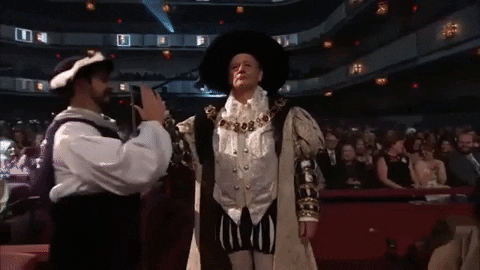A science fiction adventure about language, politics, and romance.
Update 2022-09-05
- Prologue Added
- Chapter 2 Added
- For this update, the best experience is to restart the game from the beginning.
Ansible Station 24: Lasers, Love, and Language
The Milky Way is on the brink of violence. As an interpreter on a diplomatic space station, you preoccupy a perilous political position. Soften arguments, reframe threats, and flatter the diplomats to keep the peace for one more day.
Tip the Scales, Save the Galaxy
The communal Crescent Worlders cry out for justice. The libertarian AFTA members grow ever hungrier in their expansion. The monarchistic Autarchs demand compliance. All three factions trust only that the others are out to get them. And you stand in the middle, begging for peace.
This is a story of language, linguistics, diplomacy, and war. The fate of trillions is in your hands, and you aren’t paid nearly enough for your work.
Dive Into Detailed Lore
This science fiction adventure takes place in a fictional future Milky Way Galaxy where humans have colonised habitable planets as far as they could travel. Faster-than-light travel is available, but still comparatively slow given the incomprehensibly vast distances involved. Ansibles, instantaneous communication devices, help keep human society cohesive. Three factions have emerged, and conflict brews from irreconciliable differences.
Factions and Languages
Galactic Factions
The Autarchs, autocratic nobility who speak the language Fleschette.
Apolitical Free Trade Association (AFTA) members, shrewd businesspeople and lawyers who speak the languages Pingrit and Lojit.
The Crescent worlders, low-tech commune farmers who speak dialects of Scythe.
Autarch
The Autarchs (oh-tarks) spout platitudes of unity, strength, harmony, and artistic expression, but they achieve these through staunch authoritarianism. The Autarchs enjoy the greatest amount of political power in the galaxy by conquering and reeducating entire solar systems to follow their traditions. They value the aesthetics of art and beauty above all else, though their definitions of such are quite strict.
Those born and raised in Autarch systems speak Fleschette, a language governed by strict rules around grammar and register. Autarch linguists argue that the language enhances (rather than stifles) self-expression because the confinement of the rules inspires greater creativity in its use. Most speakers flit seamlessly between truth and metaphor and expect you to assume the most charitable interpretation.
Autarchs tend to dislike speaking any language other than Fleschette for cultural reasons; they view Fleschette as the perfect example of what a language should be.
AFTA
Explicitly political despite the name, The Apolitical Free Trade Association is radically libertarian in its ideals. They tend to form companies rather than colonies, and as such there are AFTA members in practically every system in the galaxy. Given the choice between acquiring greater political power and greater purchasing power, they’ll pick the one that gives their people greater choice. Everyone is obligated to live their lives the way they choose, given that it adds value to AFTA.
AFTA boasts of how it coined the language Pingrit, also known as GSL (the Galaxy’s Second Language). Similar to Pidgin from historical records on Earth, Pingrit is a simplified trade language with a limited but pragmatic vocabulary. Pingrit was originally a constructed language, but has evolved over time to a combination of constructed and natural language. All languages in the game are substituted with English, but the default is always assumed to be Pingrit.
Because of Pingrit’s limited, imprecise vocabulary, a more complex form of Pingrit was constructed by AFTA linguists for the purpose of drafting legal documentation. This is called Lojit, a punishingly precise language similar to computer code that some say removes all ambiguity in speech. Despite the lofty ideals, it does not in fact remove all ambiguity, hence the continued need for lawyers. Some scholars tried to start a movement to replace Pingrit with Lojit entirely, but this was abandoned because it takes about seven years of intensive study to become even passably fluent in Lojit.
Crescent
Spiritual, free, and community-driven, Crescent worlds consist of Earth-like planets that support massive agricultural operations. Most Crescent farmers never leave where they were born, content with the community they’ve developed on a local level and having no greater aspirations to explore the galaxy. That said, despite its roots in spiritualism and naturalism, Crescent has made major footprints by fielding missions to solar systems offering promising new worlds to terraform. They need a lot of land, and they’re not afraid to fight for it.
Crescent worlders speak dialects of Scythe, a colloquial everyday language with hundreds of thousands of variations. It’s a hodge-podge language that developed wholly naturally over many different systems and has very few set-in-stone rules. Its dictionaries are either very short or exceedingly large depending on whether the linguist intends to list the few universal Scythe terms or capture the staggeringly vast colloquial vocabularies across the many Crescent worlds.
Crescent worlders generally dislike the role that Pingrit has taken as the de facto language of trade. They view it as a language that stifles the imagination by trying to reduce human experience into a small sample of key phrases.
Other Factions
There are hundreds of other factions in the galaxy each with their own languages and traditions which might pop up every now and then throughout the story. The main character speaks Fleschette, Pingrit, Lojit, and Scythe with relative fluency, and the study of languages and linguistics gives them an edge when gaining conversational fluency with other bespoke languages, but it’s not possible to know them all. As such, most conversations in the game are in Pingrit.
Ansibles
Ansible Stations
The one thing that keeps human society cohesive is the presence of ansibles. Ansibles are faster-than-light communication devices tethered to massive space stations. These were originally created by a mysterious race of alien progenitors, the Operators, who still exist but are greatly diminished from the height of their power, especially now that humans have moved in. Each ansible requires an Operator for function and maintenance.
Ansible Station 24 is occupied by a crew of eight: a hydroponics priest, an astronaut, a station engineer, an ansible operator, a combat drone, a maintenance robot, a landlord, and a political interpreter. It’s a quiet life when the politicians aren’t screaming at each other in the conference room.
Ansibles act similarly to telegrams from historical Earth records, in that they offer nigh-instantaneous communication but are fiddly and difficult to use, and they are very limited in the kinds of information that they can transmit. Operating them requires specialised engineers and equipment constructed outside of planetary atmospheres. There are only about 350 of them throughout the galaxy, and together they provide a web of connections across a vast network that effectively reaches every colonised solar system.
The stations hold a special role in galactic politics as well, acting as neutral stations unaligned with any faction, which means important political conferences are almost always held at an Ansible station.
Life aboard one of the stations is warm, cozy, and comfortable, with vast libraries to explore and opulent furnishing to lounge in. There are no windows; it was a priority to hide the stations from the reality of the uncaring chill of the void outside.
Ansible Station 24 was originally built in a low traffic area, until Crescent worlders terraformed three planets around a nearby solar system. AFTA traders moved in quickly to capitalise on the immigration boom, and the Autarchs jealously set up bases on moons and asteroids, searching for a way to take power for themselves.
Romance Your Crewmates
War will come to the galaxy. Enjoy your time while you still have it.
Seven characters are available as romance options. June and Beckett live on the station with you while the rest maintain a long distance correspondence.
- June of Starlight (f, 26), a Crescent witch.
- Brett Beckett (m, 39), the station steward.
- Alex Formic (nb, 60), a high-powered businessperson, your worst enemy.
- Dahlia Metric (f, 38), an AFTA courtesan.
- August of the Solar Winds (m, 25), an interpreter like you.
- Princeps Minoa I of Catastron (nb, 20), an alien adopted by an Autarch family.
- London I of Catastron (m, f, or nb, 23), an Autarch delegate in training.
Romance Option Details

June (f, 26)
June is a Crescent “growth priest” who manages the station’s hydroponics. She grows the food in a dedicated agricultural block. Unlike most growth priests, she has moved on from the Crescent community in which she was born. Her reasons are undisclosed. She keeps her feelings close to her chest.

Beckett (m, 39)
Beckett won the rights to oversee the management of Ansible Station 24 in a bitter AFTA court case after his father’s death, a case that took fifteen years and his entire self-made fortune to win. Pushing 40 and now having only the station to his name, he has resolved to stay on as manager for the near future while he figures out what to do with his life. Mostly, right now, it means he gets to wear a bathrobe and bunny slippers all day without anyone calling him out.

Alex (nb, 60)
A charming, semi-retired businessperson, Alex Formic runs a space-based auto manufacturing company. They were pulled out of retirement to supply surface-to-space shuttles when Crescent worlders needed to evacuate to make way for an AFTA mining operation, and under their leadership the company suddenly surged in market share. Alex realized that they were getting complacent and that the complacency was galaxy-wide: humans were content to just rest on their laurels rather than explore the galaxy further and improve their lives. They want to light a fire under the galaxy’s ass. Yes, that means conflict, but it also means opportunity. Not just for them. For everyone.

Dahlia (f, 38)
As an independently-operating AFTA courtesan, Dahlia arrives at the station early in the game as a companion to some haughty Autarch politician. Fascinated with the station and its weird, tiny culture, she befriends the station’s interpreter and asks to keep in touch in her travels. Throughout the game, the interpreter has the option to share a long-distance correspondence with Dahlia as she explores the galaxy. Like the interpreter, she also has a desire to ensure galactic peace, and is also in a unique position to subtly tip the scales.

August (m, 25)
Early in the game, the interpreter meets August, another interpreter who works for the Crescent worlds. A proponent (and practitioner) of free love and communal living, he is deeply uncomfortable working in space, but his talents as a polyglot have taken him down a path he never anticipated. He sees a bit of himself in the interpreter, who also isn’t fully satisfied with their lot in life, and seeks to keep up a correspondence with them throughout the game as he is ferried across the galaxy wherever Crescent worlders are in need of an interpreter like him.

Minoa (nb, 20)
Humans aren’t the only sentient species in the galaxy, nor the only ones with political power. The Operators, as they’re called, designed the original Ansibles and constructed Ansible Station 0 many thousands of years before humans arrived. Very few Operators remain, but one Operator family holds a prominent position in the Autarch hierarchy. The noble princeps Minoa made a pilgrimage to Ansible Station 24 with their family when they were young and reaches out to the station many years later during the game’s events, unprompted, curious of what became of it. The interpreter has the option to maintain a correspondence with the princeps throughout the game.

London (m, f, or nb, 23)
London I of Catastron is a provisional Autarch delegate, meaning they are under the tutelage of a primarch from another royal family as they gain enough experience to become a full-fledged delegate. London’s best friend Alexandria (the primarch’s daughter) is being married to an AFTA president’s son in a political alliance, so, during the negotiation of terms on Ansible Station 24, London treats it as the last hurrah of their friendship.
Play the Demo
Content Warning
Coarse language, alcohol and drug use, sexual references, and confronting subject matter including genocide and terrorism.
Best Reading Experience
- Blast some synthwave. I recommend Spaced by the Toxic Avenger.
- Read the Foreword which explains the thought process behind how languages are represented in the story.
- If you find that you’re having trouble keeping track of names, terms, and references, you can always review the Encyclopedia Galactica from the stats page.
Progress
Current demo includes:
- Chapter 1
- Chapter 2
- 65,000 words total
Previous Subtitles
- Language is No Barrier
- Lasers, Love, and Language
https://dashingdon.com/play/will2/ansible-station-24/mygame/
Feedback Request
After finishing the demo, consider some of the following questions and follow up in this forum thread.
- Which character did you accuse of being the saboteur, and why?
- Which character did you like the most, and why?
- Which faction has the moral high ground, in your opinion?
- Where do you see this story going?
- How would you describe Ansible Station 24 if you were to recommend it to others?



















